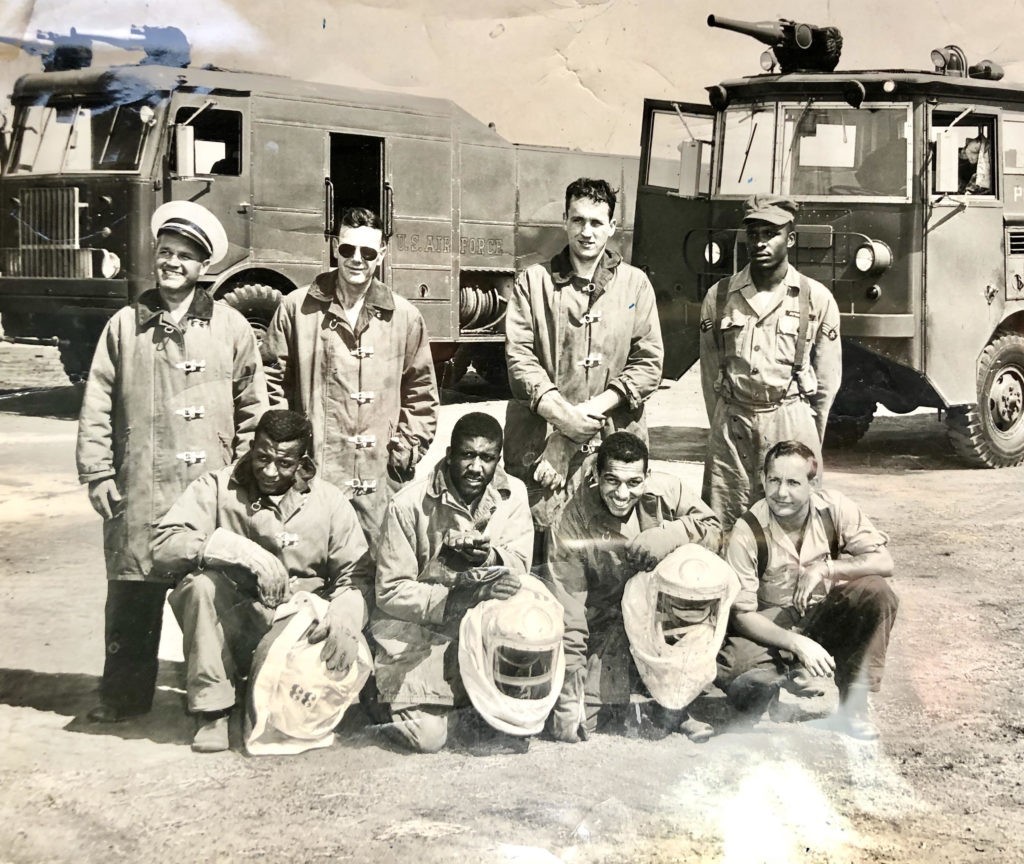
In war, there are no second chances. Split second decisions make all the difference between life and death. One misstep or one bad move could prove to be catastrophic. There exists no time for joy and there exists no time for miscalculation.
Once a person has decided to commit themselves to war, their life changes forever. This was the experience of Dewey Ayers Sr. as he joined the U.S. Air Force on his 18th birthday. Initially planning on joining the Army, Ayers was redirected to the Air Force due to his high test score. There, he became a member of the U.S. Strategic Air Command, as well as, Air Force Aircraft Rescue and Firefighting in the Korean War.
Serving as a rescue in the Korean War for three years, Ayers made it a point never to fire his weapon. At times, he found himself in the middle of the line of fire. Even in the hostility of war, surrounded by bloodshed, Ayers still didn’t shoot his gun. He felt it was his duty to save people, not harm them.
“There were times we had to get under the firetrucks because of the fights between the soldiers,” said Ayers. “Many times, we had to crawl under the trucks to keep from getting shot in the middle of the crossfire. We had weapons. We had carbines, but we never used them. The only time we used them was to clean them. They never got dirty, but we cleaned them. In Korea, we had Marines back us up. They did the fighting. We did the rescue.”
Along with the war overseas, Ayers faced a constant battle at home as well. After dedicating himself to fighting for his country, Ayers took on a new fight. As a black man in the 1950s, he felt it was time to dedicate himself to fighting for his people.
“I’ve served my country,” said Ayers. “Now, I’ve got to serve my race. So, I never quit. I went from one fight to the other. I went into service for the country, because I felt like I was needed. When I got out of the service, I fought for rights. I was very, very active. We were always involved in demonstrations. As far as going to restaurants, we would do sit-ins. Buses, we did a lot of things. I think, maybe, the military made me more active. We never drew a line as far as race was concerned. You were an American. It wasn’t about black or white, we were Americans.”
Today, Ayers still receives medals and honors for his service. He has an Ambassador for Peace Medal from the Republic of Korea, as well as, a Defense Exceptionally Distinguished Service Medal from the Secretary of Defense. He also has an exceptional duty and honor Certificate for Distinguished Service from congress, as well as, a signed birthday letter from President Barack Obama, just to name a few.
“A lot of people would ask me about how many people I shot and killed,” said Ayers. “Well, let me tell you. I didn’t kill anybody. I didn’t take lives. I saved lives. My whole career was saving lives. I didn’t ever shoot anybody.”
You may also like
-
UWG’s Ingram Library Hosts Pop-Up Study Spot to Help Students Prepare for Finals Week
-
UWG Offers Mental Health Support And Academic Services To Maintain Student Success During Finals Week
-
UWG Alumnus Shares His Experience Exploring the Underground Flood Channels of Las Vegas
-
Georgia Students Simulate the Struggles of Dementia
-
UWG PR Students Score a Georgia Power Tour at Atlanta Corporate Office